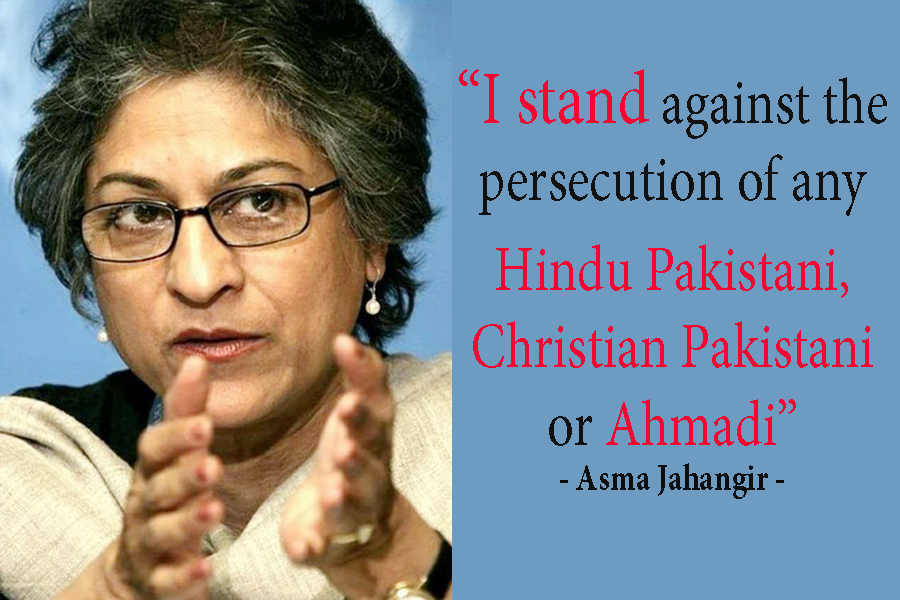CCA expresses condolences on the passing away of renowned Pakistani human rights activist Asma Jahangir

The Christian Conference of Asia (CCA) expressed condolences on the sudden demise of Asma Jahangir, an internationally recognised champion of the human rights movement hailing from Pakistan.
Asma Jahangir has been closely associated with the human rights advocacy initiatives of the Christian Conference of Asia and the World Council of Churches for several years. Both the Asian and global ecumenical movement worked with Asma Jahangir on the global advocacy against the misuse of the blasphemy law in Pakistan. Asma Jahangir co-founded the Human Rights Commission of Pakistan. CCA and WCC became partners of the Human Rights Commission of Pakistan in their human rights advocacy on rights of religious minorities and democratisation in Pakistan.
The Christian Conference of Asia conveyed deep condolences to the bereaved members of the family and numerous friends and admirers of Asma Jahangir around the world.
The General Secretary of CCA Dr. Mathews George Chunakara in a condolence message stated that “Asma Jahangir was a strong advocate for democratisation and human rights, and she promoted the cause of developing a counter liberal politics to challenge growing religious intolerance and politicisation of religion. She was concerned about the increasing trend of impunity among those who commit crimes in the name of religion, and she advocated that this trend has to be addressed with a sense of urgency”.
The CCA General Secretary recollected that while Asma Jahangir was serving as the United Nations (UN) Special Rapporteur on Extrajudicial, Summary and Arbitrary Executions and the Special Rapporteur on Freedom of Religion or Belief, he had several opportunities to work with her on behalf of the human rights advocacy programmes of the CCA and the WCC in 1990s and 2000s.
“I remember her profound articulations on several occasions at the UN fora about the human rights violations and persecutions against religious minorities in different parts of the world, especially misuse of the blasphemy law in Pakistan. While addressing the Asia Plenary session of the Central Committee meeting of the WCC in the early 2000’s, Asma Jahangir reminded the international ecumenical community how important it is to be careful about the trend in many countries bringing religion into legislations, as the law itself can become an instrument of persecution against religious minorities”, added Dr. Mathews George Chunakara.
Asma Jahangir tenaciously fought for democratisation and civil rights in her own country, and was an ardent critic of authoritarianism and imposition of emergency in Pakistan; precisely for this reason she was put under house arrest in 2007 after the imposition of emergency in Pakistan.
After serving as one of the leaders of the Lawyers' Movement, she became Pakistan's first woman to serve as the President of the Supreme Court Bar Association. She provided leadership for several Asian human rights organisations as well as for the International Federation for Human Rights. Her contributions as a member of the UN panel for inquiry into Sri Lankan human rights violations and on a fact-finding mission on Israeli settlements were remarkable.










